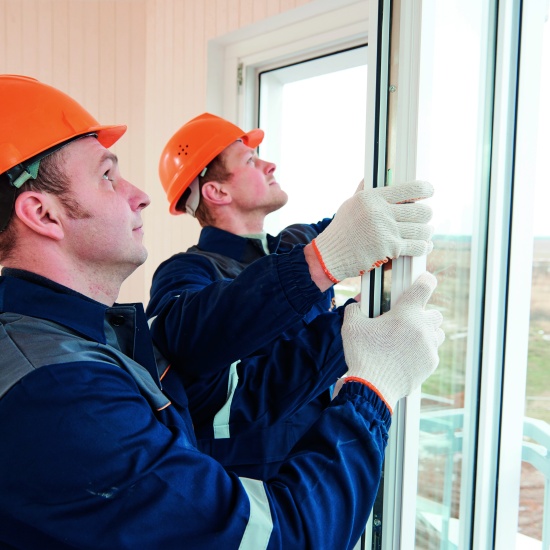The Year of the Heat Pump
2023 was an exceptional year for retrofit in the residential sector. The trajectory is going in the right direction, and that is a testament to the appetite of the Irish people to do something tangible to reduce the CO2 emissions from their homes.
An exceptional year for retrofit
2023 was an exceptional year for retrofit in the residential sector. Building on the achievements made in 2022, last year hit new, more ambitious targets. The trajectory is going in the right direction, and that is a testament to the appetite of the Irish people to do something tangible to reduce the CO2 emissions from their homes.
This momentum driving people to become more energy efficient may be a combination of the cost-of-living crisis and extremely high energy prices as opposed to any genuine or deep seated concerns about the environment. While the latter would be my preferred motivator for action, the end result is ostensibly the same. But what happens when the non-environmental factors driving retrofit uptake start to fade into the background? What happens when inflation stabilises, energy prices come down, the weather warms up and we start to think about an Olympics and a Euro Football Tournament, can we still maintain the momentum required for retrofit?.
Retrofit in the Irish pysche
My hunch is that we are almost there in terms of permanently embedding retrofitting into the Irish psyche, and the sector is approaching a place of exponential growth, a so-called 'tipping point'. We have tasted the 'golden nectar' of a B2 retrofit and we like it, and we want more of it. We want warm, comfortable homes that are more energy efficient, cheaper to run, worth more and better for the environment. Sorry about the flowery language but I think it is a nice way of saying that when you experience 'it' you would not want to go back to what you had before. Importantly if it was not your home in which you experienced the 'golden nectar of a B2 retrofit' you should be thinking of starting your own retrofit journey. And when better to start than in 2024.
You may have visited a friend recently and experienced first-hand the positive impacts of their retrofit journey. The fantastic looking exterior to the house - result of external wall insulation, the stylish, thermally efficient, doors and windows, the solar panels. Perhaps you even had a look at the heat pump, however I seriously doubt that anyone stuck their head up into the attic to look at the enhanced attic insulation. In fairness, there probably is one though, there always is! You were more likely shown the solar app and how much electricity they got for free last year. You get point. I have had many conversations with the other half about how shabby our kitchen looks and the cold front room on the way home from visiting friends who had just completed a massive renovation or installed a new kitchen, you know what I am talking about, that conversation on the way home in the car.
Retrofit in 2024
Well, the good news is that 2024 is set to be another bumper year. SEAI started the year with a huge number of applications on the books i.e., people who applied to do grant related retrofitting works in the latter part of last year, and the works will only be completed, and grant paid out this year. The Government are launching a new low interest loan for Home Energy upgrades at the end of March. This could be transformative helping many more people to start on their own retrofitting journey in 2024. We expect to register several new One Stop Shops, as there is significant interest in this programme from a wide range of contractors. And we are constantly developing new policy initiatives to support the growth of different parts of the retrofitting sector.
There is one area though, where we are going to have to do even more, and that is the deployment of heat pumps. While the numbers for 2023 were good, significantly better than 2022, we need a rapid acceleration of this key technology. The main reason for the National Residential Retrofitting Plan is to help Irish householders to decarbonise their homes i.e., move away from fossil fuel heating systems which are emitting too much CO2 into the environment, basically stop burning stuff.
Ireland's total energy related emissions from electricity, heating and transport (all the fossil fuels burned in Ireland) accounted for 33million tonnes CO2 in 2022. Of those, heat-related emissions i.e., fossil fuels burned for all heat sectors, was 12 million tonnes Co2 with emissions from housing stock alone at just over 6.1 Mt CO2. So, fossil fuels burned to heat our homes accounts for almost one fifth of the total national energy-related emissions. My thanks to my colleague Jim Scheer, head of Data and Insights in the SEAI and the incredibly talented statistics and data teams for supplying the data. I know that numbers are not everyone's forte, so for clarity; we are not going to get to where we need to go in terms of achieving our national CO2 emission reduction targets without decarbonising the residential sector.
The year of the heat pump
This means changing our oil and gas and solid fuel to electrical heating (heat pumps) which are powered by increasingly renewably generated electricity. This is a big step for Irish homeowners. We know this, as we have done significant amounts of behavioural analysis on factors which both promote and prevent the installation of heat pumps.
Everyone who currently has a fossil fuelled boiler system, particularly one that may be approaching the end of its useful life, say 12-15 years old, should take the time to read up on the benefits of heat pumps; what they are, how they work and how they can utterly transform the comfort levels of your home. And if you need to replace your current boiler this year, give serious consideration to replacing it with a heat pump. You will enjoy all the added comfort benefits, safe in the knowledge that you are reducing your own greenhouse gas emissions while disconnecting yourself from what are likely to be increasingly expensive fossil fuels.
In Chinese culture, the Chinese zodiac is a traditional classification scheme based on the Chinese calendar that assigns an animal and its reputed attributes to each year in a repeating 12-year cycle. I was thinking of renaming 2024 as the 'year of the heat pump' with a hope that this would keep us focused on driving up the number of heat pumps installed throughout the year.
However, as it turns out, luck is on our side, and 2024 is in fact the year of the Dragon, specifically the Wood Dragon. 2024 will bring authority, prosperity and good fortune. The "Wood Dragon year, combined with the nourishing wood element, brings evolution, improvement and abundance, making it the perfect time for rejuvenated beginnings and setting the foundation for long term success", and this is exactly what we are going to do with our focus on heat pumps in 2024. Isn't it time you considered a rejuvenated beginning for the way you heat your home.
Learn more about heat pumps Download the Retrofit Full Year Report 2023



